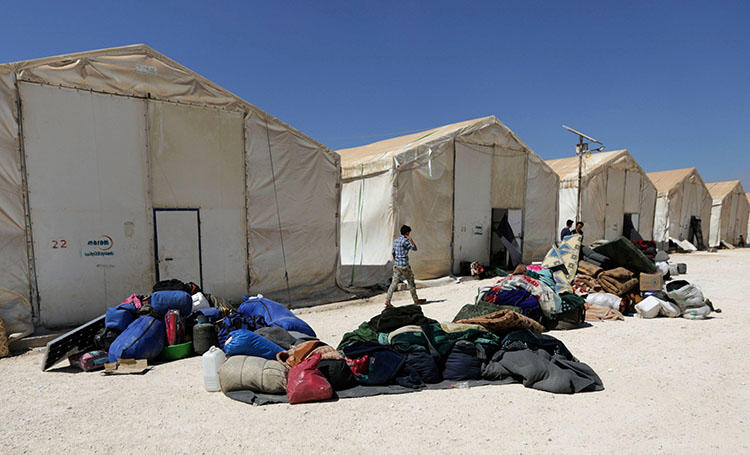Beirut, August 13, 2018–The Committee to Protect Journalists today condemned the killing of Syrian cameraperson and photojournalist Ahmed Azize and urged all parties in the ongoing Syrian conflict to guarantee the safety of civilians, including journalists.
Azize, who worked for the pro-opposition Aleppo News Network, was killed on August 10 while covering Russian airstrikes on the town of Urum al-Kubra, 19 km (11.8 miles) southwest of the city of Aleppo, according to news reports, the Syrian Journalist Association, and his employer.
Azize’s father, Abu al-Ezz al-Halabi, was cited by the Syrian Journalists Association as saying that Azize left home at 7 p.m. to cover the effects of two Russian aerial missile strikes on Urum al-Kubra in Aleppo province when the fighter jets turned back and bombed the area again, killing Azize and 20 other civilians.
The airstrikes were part of a campaign by pro-President Bashar al-Assad forces, the Russian military among them, to retake Idlib, Aleppo, and Hama provinces from Syrian opposition forces, according to The Associated Press. This campaign has further complicated the situation of the 60 Syrian journalists who fled the southern provinces of Daraa and Quneitra for northern Syria to escape the advancing Assad-aligned forces for fear of arrest and torture, according to CPJ research.
“Like scores of journalists before him, Ahmed Azize put his life on the line to report on events in Syria and he paid the ultimate price for his courage,” said CPJ Middle East and North Africa Program Coordinator Sherif Mansour from Washington, D.C. “With the offensive underway by pro-Assad forces to retake Idlib and surrounding areas, all sides to this conflict must do their utmost to allow journalists to report safely.”
The Russian Foreign Ministry did not respond immediately to CPJ’s emailed request for comment.
Hamidi al-Halabi, a colleague of Azize at the Aleppo News Network, told CPJ that Azize was reporting on the airstrike when he saw that some of the victims were alive and rushed to help.
“He was carrying a child who was still alive when the second air raid happened, killing them both instantly,” Al-Halabi said.
Azize began working for Aleppo News Network in 2014 and covered human interest stories in Aleppo province. His recent stories included that of a mother of seven handicapped children from Al-Hasakah, youth activities in rural areas of Aleppo, and the difficulties facing doctors and medical staff to provide health care at Al-Karama hospital in rural Aleppo.
Syria is one of the most dangerous places in the world for journalists. At the time of CPJ’s most recent prison census, at least seven journalists were in Syrian state prisons; many others are missing. At least 122 journalists have been killed covering the Syrian conflict, according to CPJ research.
